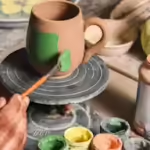By Louis Whitehead
The legitimacy of mixed-bloodsI am only part Indian, but all of me is confused. A couple of weeks ago, Indian Country Today ran an editorial that discussed the opportunities for education and employment available to Native American youth today. The piece also talked about how Native communities should do what they can to support the endeavors of their young people, and how young people in turn should do what they can to support their communities, tribes, and nations. While such noble assertions are all well and good, they often fail to include and take into account an often-overlooked group of people: those of mixed blood, especially those not tribally enrolled and tied to reservation communities. One can essentially relegate such people to the status of the unwanted stepchildren of Indian Country. The label “mixed blood” can carry a number of different meanings. Throughout Indian Country, the phrase commonly refers to a person who can trace his or her lineage to at least one American Indian group and to at least one other non-Native nation. Mixed bloods may or may not be enrolled in federally-recognized tribes. Those who cannot claim tribal enrollment likely have awareness of their Native American heritages, but are unable to fully document their bloodlines. Due to issues such as tribal enrollment and certification of Indian blood, Native Americans represent the only group of people in the United States who must provide proof of who they are in terms of national origin. Mixed-bloods have fewer support systemsUsually due to lack of tribal enrollment, many mixed blood people do not have access to the same support systems that those who are tribally enrolled do. For instance, many tribes across the country provide scholarship funds for qualifying enrolled members who pursue higher education. People who are not enrolled, even those who can trace their bloodlines to that tribe, need not apply. Many colleges, universities, and private organizations also provide higher education money for qualifying students who are tribally enrolled, or who can document their Native heritages if they are not enrolled. Some schools, such as the University of Minnesota-Morris, even offer tuition waivers for tribally enrolled students. Unfortunately, students are not tribally enrolled are unable to take advantage of such support systems. They must compete for the same financial aid and other resources as everyone else. Need to address injusticesOne can understand why eligibility requirements need to be imposed on such scholarships and other forms of assistance. If the scholarships bore no such requirements, they could easily be granted, sometimes fraudulently, to non-Indian people. Doing so would defeat the purpose of providing such education assistance to Native Americans. Denying even some assistance to mixed-blood peoples who are legitimately linked to Native communities perpetuates the American tradition of statistical and demographic genocide that has been in place since the beginning of the reservation era. One cannot deny that Native people and tribes are facing tough times and need their young people to go out into the world, educate themselves, and return to apply what they’ve learned for the benefit of their communities. At the same time, mixed-blood people deserve support, too, so that they also can honor their roots and serve the People. Acknowledgment, understanding, and tolerance are the first goals that Native America needs to achieve in addressing injustices that mixed bloods face every day. Life will be better for all of us when Indian Country abandons the “us and them” mentality and extends a hand in friendship to mixed bloods. |
||
|

 Louis Whitehead is a graduate student at South Dakota State University and a frequent contributor to National Native News. He has also written for publications such as Bowlers Journal International, Indian Country Today, the Lakota Journal, and Ikce Wicasta.
Louis Whitehead is a graduate student at South Dakota State University and a frequent contributor to National Native News. He has also written for publications such as Bowlers Journal International, Indian Country Today, the Lakota Journal, and Ikce Wicasta.








